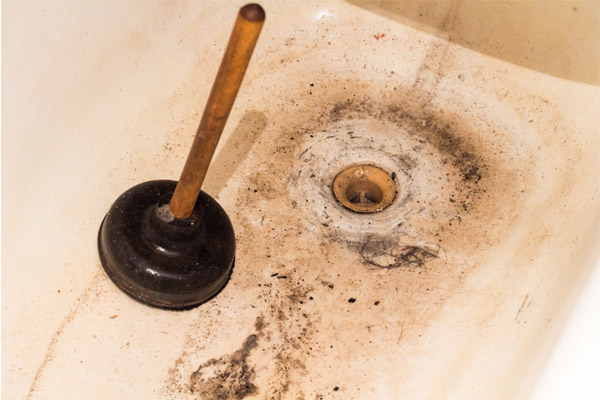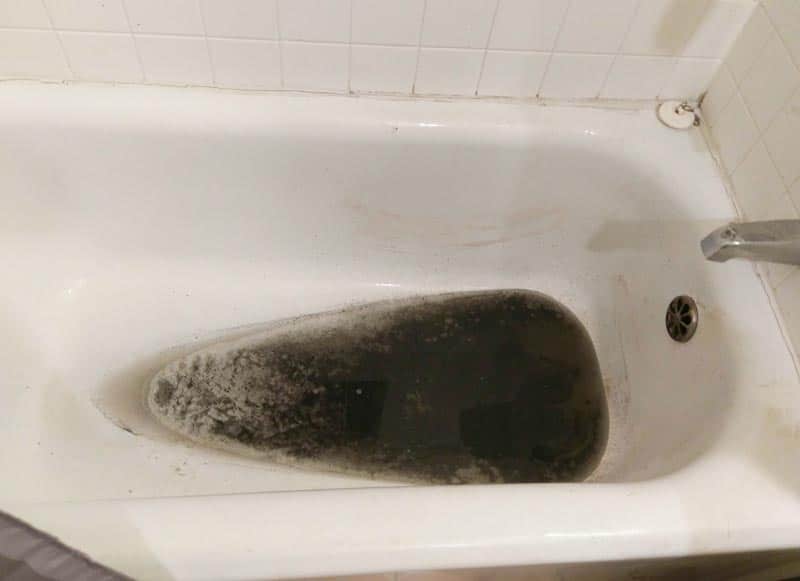Exploring Why Sewage Comes Up Through the Bathtub
Exploring Why Sewage Comes Up Through the Bathtub
Blog Article
Are you interested in information and facts around Water Coming up Bathtub Drain?

Sewage backup in the tub can be a distressing and unhygienic trouble for any type of homeowner. Not only is it bothersome, but it additionally positions severe wellness risks and indicates underlying problems with the plumbing system. Recognizing why sewage is turning up with the bath tub is crucial for taking suitable action to resolve the problem successfully.
Intro to the Issue
Common Reasons for Sewer Back-up
Blockages in the Drain Line
Among the most usual causes of sewage back-up is an obstruction in the drain line. This can occur as a result of the build-up of debris, grease, or international items in the pipelines, protecting against correct flow and triggering sewage to support into your bathtub.
Tree Origin Intrusion
Tree origins seeking wetness and nutrients can penetrate drain lines via tiny cracks or joints. With time, these roots can grow and increase, causing substantial damage to the pipes and bring about sewage backup issues.
Recognizing the Problem
When sewer starts backing up right into the tub, it's a clear sign of a problem with the water drainage system. The wastewater that ought to be moving away from your home is instead finding its way back right into your home, which can bring about substantial damages and health hazards.
Possible Reasons
Several factors can add to sewer back-up in the bath tub. From clogs in the sewage system line to concerns with the plumbing framework, identifying the root cause is necessary for discovering an option.
Aging Facilities
Older homes may have obsoleted plumbing systems that are much more susceptible to deterioration, fractures, and degeneration. As pipes age, they come to be much more vulnerable to leaks and clogs, boosting the likelihood of sewer back-up events.
Heavy Rainfall or Flooding
During durations of heavy rainfall or flooding, the sewer system might become overwhelmed with excess water, creating backups and overflows. This can cause sewer backing up into bathtubs and other components inside the home.
Signs of Sewage Backup
Foul Odors
Unpleasant smells originating from drains pipes or components, particularly in the restroom, might show sewer backup problems. These smells are often strong and persistent, signaling a problem that requires prompt focus.
Slow Draining Fixtures
Bath tubs, sinks, and commodes that drain pipes slowly or not whatsoever could be experiencing sewage back-up. If numerous components are impacted at the same time, it's likely that the problem originates from a common factor, such as the major sewer line.
Gurgling Noises
Odd gurgling or gurgling noises coming from drains when water is running elsewhere in your home are a sign of air caught in the plumbing system. This air build-up can arise from sewage backup and ought to be examined quickly.
Health Risks Associated with Sewer Back-up
Contamination of Supply Of Water
Sewage back-up can pollute the supply of water in your home, posing a significant health and wellness danger to you and your family. Exposure to contaminated water can lead to gastrointestinal problems, skin infections, and other diseases.
Mold and mildew Growth
Dampness from sewage back-up can create optimal problems for mold growth in your home. Mold and mildew spores can aggravate respiratory troubles and cause allergic reactions in sensitive individuals, making prompt cleaning important.
Spread of Disease
Sewage includes hazardous microorganisms, infections, and parasites that can create a range of conditions, consisting of hepatitis, cholera, and gastroenteritis. Coming into contact with sewer or polluted surface areas puts you at risk of infection.
Cleaning Up After Sewage Backup
Disinfection Procedures
Thoroughly sanitize and disinfect impacted areas after sewage backup to get rid of damaging microorganisms and stop mold and mildew growth. Usage ideal cleansing products and protective gear to ensure risk-free and reliable clean-up.
Restoration of Impacted Locations
Fix any kind of damages to flooring, walls, or fixtures caused by sewage backup. Depending upon the degree of the damage, you may need to change carpets, drywall, or other products to recover your home to its pre-loss problem.
Immediate Actions to Take
Shutting Off Water System
In the event of sewage back-up, it's important to shut off the supply of water to prevent more contamination and damages. Locate the primary water shutoff valve in your house and closed it off until the concern can be dealt with.
Calling a Professional Plumber
Taking care of sewer back-up is not a DIY task. Call a licensed plumber with experience in dealing with sewage-related problems to analyze the situation and do essential repairs or cleanups.
Avoiding Contact with Contaminated Water
Until the sewage backup is dealt with, avoid contact with polluted water to avoid the spread of germs and microorganisms. Use protective gear if you must remain in the damaged area and clean your hands thoroughly afterward.
Safety nets
Normal Upkeep of Sewer Lines
Set up routine evaluations and upkeep of your sewage system lines to recognize and attend to prospective problems before they escalate right into significant problems. This can consist of cleaning debris, examining for tree root invasion, and repairing any type of damaged pipelines.
Installing Bayou Valves
Consider setting up backwater shutoffs in your plumbing system to prevent sewage from receding into your home throughout periods of heavy rainfall or flooding. These shutoffs automatically close when water starts backing up, protecting your residential or commercial property from contamination.
Proper Disposal of Family Waste
Avoid flushing anything aside from bathroom tissue and human waste down the commode to prevent clogs and obstructions in the drain line. Dispose of oil, oil, and other household chemicals correctly to reduce the threat of plumbing issues.
Why is Sewage Coming Up Through Your Bathtub?
Reasons You May Have Sewage in Your Bathtub
All the drains in your home lead down different pipes to get to the main sewer line. If you’re seeing sewage in the bathtub, the problem is that the main sewer line is clogged up, which is causing the water running through other drains to be pushed back into other pipes. The problem isn’t the bathtub, but the main line. The sewer line can get backed up by anything that goes down the drain, from food waste, hair and soap particles to jewelry or children’s toys. Tree branches or dirt can also impact the sewer line. If you’re seeing sewage in the bathtub, you have a big problem that usually needs a professional plumber. Trying to fix this problem without the right tools or knowledge can lead to bigger plumbing problems.
Fixing a Clogged Sewage Line
Although you shouldn’t try to fix the clogged sewer line on your own, you may be able to mitigate the issue until you can get a plumber to your home. A plunger isn’t going to help, because it won’t be able to reach the sewage drain to unblock the problem.
Turn Off Water
Find the main shutoff valve to your home to turn off the water. This prevents more water from going down the drain which is only going to flow back into your bathtub.
Snake the Toilet and Drain
Start by using a drain pipe snake to clean out the toilet drain. Rotate the snake clockwise when you push the snake down. As you pull it out, the snake should spin counterclockwise. Follow up by snaking out the bathtub drain. If you are successful, both the toilet and shower will drain efficiently. If you’re not successful, you probably have a bigger problem than your tools and experience can manage.
Contact a Professional Plumber
Pros have the tools to find the source of the problem and the experience to manage big blockages without causing more damage to your pipes. It can save you a lot of stress by contacting the professionals sooner rather than later.
Identify the Early Signs of a Clogged Sewage Line
If you’re gearing up for a holiday family gathering or just want to avoid the hassle of a clogged sewage line in your home, make sure you recognize the signs of a clogged sewer line.
Slow drains are a sign of a sewer line problem. Gurgling drains from any drain in your home indicate that you may have an obstruction in the drains. If your toilet keeps getting clogged, it might be a problem with the sewer line. When you see laundry water or water from the dishwasher in different sinks in the home, it’s an indication that your sewer drain is beginning to get backed up. These symptoms can often be “fixed” temporarily to get through a day or week before you start seeing the same problem. When it comes to plumbing problems, you want to fix the root of the problem instead of muddling through. The clog will not go away on its own.
https://handymanconnection.com/mississauga/articles/why-is-sewage-coming-up-through-your-bathtub/

We had been made aware of that write-up on Why is There Sewage Coming Up Through the Bathtub through a pal on a different site. Sharing is nice. You just don't know, you may very well be helping someone out. We cherish your readership.
Click Here
Report this page